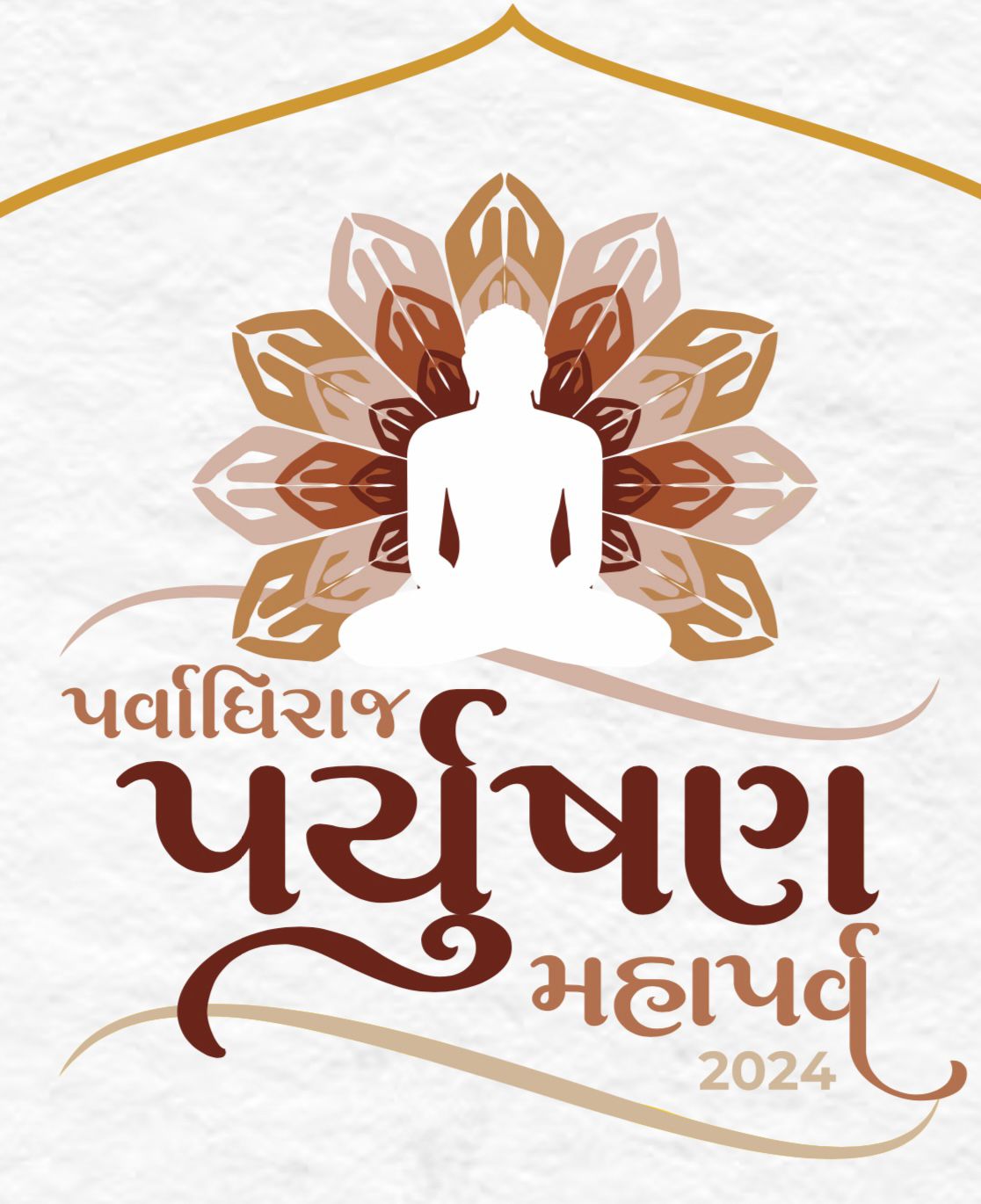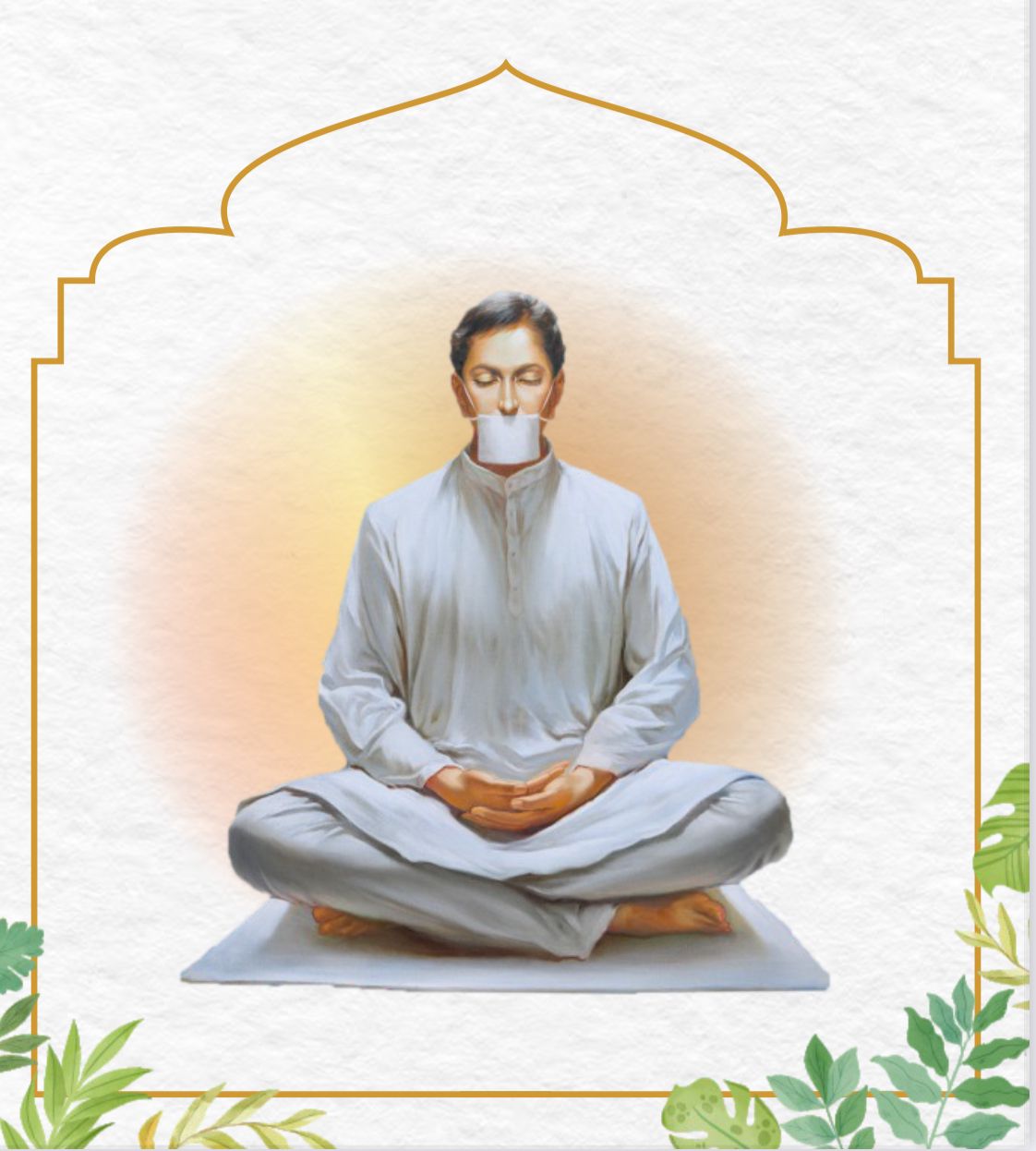News in Hindi (English below)
प्रेस विज्ञप्ति
पर्युषण महापर्व 1 सितम्बर से प्रारम्भ
आत्मा की शुद्धि के लिए करेंगे तप व जप
8 सितंबर को “मिच्छामि दुक्कड़म्” के साथ होंगी पूर्णिहूति
- 28 अगस्त 2024।
जैन धर्म के पर्युषण पर्व मनुष्य को उत्तम गुण अपनाने की प्रेरणा हैं। इन दिनों जैन धर्मावलंबी व्रत, तप, साधना कर आत्मा की शुद्धि का प्रयास करते हैं और स्वयं के पापों की आलोचन करते हुए भविष्य में उनसे बचने की प्रतिज्ञा करते हैं। इस पर्व का मुख्य उद्देश्य आत्मा को शुद्ध बनाने के लिए आवश्यक उपक्रमों पर ध्यान केंद्रित करना होता है। जैन धर्म में सबसे महत्वपूर्ण त्योहारों में से एक है पर्युषण महापर्व। श्वेतांबर व दिगंबर समुदाय के धर्मावलंबी भाद्रपद मास में “पर्युषण महापर्व” की साधना - आराधना करते है। श्वेतांबर समुदाय के आठ दिवस को “पर्युषण” के नाम से जाना जाता है जो कि दिनांक 1 सितम्बर से प्रारम्भ होंगें तथा 8 सितम्बर को “संवत्सरी महापर्व” (क्षमापर्व) के दिवस के साथ पूर्ण होगें। वहीं दिगम्बर समुदाय के दस दिवसों को “दस लक्षण पर्व” के नाम से जाना गया हो जो कि 8 सितंबर से शुरू होकर अनंत चतुर्दशी 17 सितंबर को समाप्त होंगे।
श्रमण डॉ पुष्पेन्द्र ने बताया कि चातुर्मास प्रारम्भ के उनपचास(49) या पचासवें (50) दिवस पर संवत्सरी पर्व की साधना की जाती है। इसी क्रम में देश के विविध अंचलों चातुर्मासरत श्रमण - श्रमणियों के पावन सान्निध्य में जैन धर्मावलम्बि तप - त्याग - साधना - आराधना पूर्वक इस महापर्व को मनाएगें। इन दिवसों में जैन अनुयायियों के मुख्यतया पांच प्रमुख अंग हैं स्वाध्याय, उपवास, प्रतिक्रमण, क्षमायाचना और दान।
पर्युषण पर्व के दौरान प्रतिदिन जैन स्थानकों में स्वाध्याय के रूप में निरंतर धार्मिक प्रवचन होंगे। जो कि प्रातःकाल होगें। इसमें सर्वप्रथम जैन आगम सूत्र “अन्तकृत दशांग सूत्र” का प्रतिदिन मूल व भावार्थ के साथ वाचन पश्चात् स्वाध्याय के विशिष्ट गुणों, सेवा, संयम, साधना, ध्यान, सद्व्यवहार पर प्रवचन होंगे। प्रतिदिन सुबह व सांयकाल प्रतिक्रमण होंगे जो आत्मशुद्धि के लिए नितांत आवश्यक हैं। आठवें दिवस संवत्सरी महापर्व पर विस्तृत स्व आलोचना का पाठ होगा जिसमें जीवन भर के अंदर होने वाली पाप प्रवृत्तियों का उल्लेख करते हुए आत्मालोचना कर “मिच्छामि दुक्कड़म्” किया जाएगा।
सादा भोजन व सादगी पूर्ण जीवन व्यतीत करेंगे -
पर्युषण महापर्व के दौरान जैन धर्मावलम्बि सादे भोजन पर जोर देते है है जो कि बिना हरी सब्जियों के बनाया जाएगा। इसका मुख्य कारण यह है कि स्वाद आसक्ति का त्याग जैन धर्म में प्रमुख तौर पर बताया गया है उसी के अनुरूप जैन अनुयायी इसका पालन करते है। सूर्यास्त होने के बाद भोजन भी नहीं करेंगे। अधिक से अधिक सादगी - त्याग पूर्वक जीवन यापन करेगें।
पर्युषण का अर्थ आत्मचिंतन और नवीनीकरण का उत्सव -
श्रमण डॉ. पुष्पेन्द्र ने बताया कि पर्युषण पर्व जिसे क्षमा पर्व के नाम से भी जाना जाता है, पर्युषण का अर्थ दो शब्दों परि (स्वयं को याद करना) और वासन (स्थान) से लिया गया है. इसका मतलब है कि इस उत्सव के दौरान सभी जैन एक साथ आते हैं और अपने मानसिक और आध्यात्मिक विकास के लिए एक साथ उपवास और ध्यान करते हैं. जैन धर्म में अहिंसा एवं आत्मा की शुद्धि को सर्वोपरि स्थान दिया गया है. मान्यता है कि प्रत्येक समय हमारे द्वारा किये गये अच्छे या बुरे कार्यों से कर्म बंध होता है, जिनका फल हमें भोगना पड़ता है. शुभ कर्म जीवन व आत्मा को उच्च स्थान तक ले जाते हें, वही अशुभ कर्मों से हमारी आत्मा मलिन होती है. जिसको पवित्र व स्वच्छ करने के लिए पर्युषण पर्व की आराधना की जाती है।
उल्लेखनीय है कि श्वेतांबर जैन समुदाय में पर्युषण पर्व का आरंभ भादौ के कृष्ण पक्ष से ही होता है जो भादौ के शुक्ल पक्ष पर संवत्सरी से पूर्ण होता है। यह इस बात का संकेत है कि कृष्ण पक्ष यानी अंधेरे को दूर करते हुए शुक्ल पक्ष यानी उजाले को प्राप्त कर लो। हमारी आत्मा में भी कषायों अर्थात क्रोध - मान - माया - लोभ का अंधेरा छाया हुआ है। इसे पर्युषण के पवित्र प्रकाश से दूर किया जा सकता है।
News in English
We will engage in penance and chanting for the purification of the soul.
On September 8, the festival will conclude with "Michhami Dukkadam."
The Paryushan festival in Jainism inspires individuals to adopt virtuous qualities. During these days, Jain followers strive to purify their souls through fasting, penance, and meditation, as well as by practicing self-purification. They reflect on their sins and vow to avoid them in the future. The main purpose of this festival is to focus on activities necessary for the purification of the soul. It is one of the most important festivals in Jainism.
The great festival of Paryushan is observed by followers of both the Shvetambara and Digambara communities. The Shvetambara community's eight-day observance, known as "Paryushan," will begin on September 1 and will end on September 8 with "Samvatsari Mahaparva" (Kshama Parv). Meanwhile, the Digambara community’s ten-day observance, called "Das Lakshan Parv," will start on September 8 and conclude on September 17, the day of Chaturdashi.
Shramana Dr. Pushpendra explained that the Samvatsari festival is celebrated on the 49th or 50th day after the beginning of Chaturmas. Throughout the country, in the holy presence of Shramanas and Shramanis, Jain followers will observe this great festival with penance, sacrifice, meditation, and worship. The main practices during these days include self-study, fasting, pratikraman (repentance), apology, and charity.
During the Paryushan festival, there will be daily religious discourses in the form of Swadhyay in Jain Sthanakas, held every morning. These sessions will begin with the recitation of the Jain Aagam Sutra "Antkrit Dashang Sutra," followed by discourses on the virtues of Swadhyay, service, self-restraint, Sadhana, meditation, and good behavior. Pratikraman, essential for self-purification, will be conducted every morning and evening. On the eighth day of Samvatsari Mahaparva, there will be a detailed self-criticism session where participants will reflect on the sinful tendencies that have occurred throughout their lives, culminating in "Michhami Dukkadam."
Simple Living and Simple Eating
During the Paryushan festival, Jain followers emphasize simple food, prepared without green vegetables. This practice reflects the Jain principle of renouncing attachment to taste. Food is also not consumed after sunset, as part of the observance of simplicity and sacrifice in life.
The Meaning of Paryushan: A Festival of Introspection and Renewal
Shramana Dr. Pushpendra noted that the Paryushan festival, also known as the Festival of Forgiveness (Kshama Parva), derives its meaning from two words: "Pari" (self-reflection) and "Vasan" (dwelling). This signifies that during this festival, all Jains come together to fast and meditate for their mental and spiritual growth. In Jainism, non-violence and soul purification are held in the highest regard. It is believed that karma is bound by the good or bad deeds we perform, and we must face the consequences. Auspicious deeds elevate life and soul, while inauspicious deeds pollute the soul. To cleanse and purify it, rituals are necessary, and the Paryushan festival is celebrated for this purpose.
Notably, in the Shvetambara Jain community, the Paryushan festival begins on the Krishna Paksha of Bhado and concludes with Samvatsari on the Shukla Paksha of Bhado. This signifies the transition from darkness (Krishna Paksha) to light (Shukla Paksha), representing the removal of vices like anger, pride, delusion, and greed from the soul, which can be dispelled by the holy light of Paryushan.

